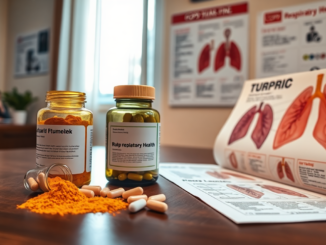Prepare for your trip to the UK with these essential health tips and vaccination advice.

Topics covered
Traveling to a new country can be an exhilarating experience, but it also comes with its own set of health risks. If you’re heading to the United Kingdom, being aware of the current health landscape is crucial. From vaccination requirements to general health tips, staying informed will help you enjoy your trip while minimizing potential health issues.
Vaccination preparation for your trip
Before you embark on your journey, it’s essential to check your vaccination status and consult your doctor at least a month in advance. This timeframe allows you to receive any necessary vaccines or medications.
If you or your healthcare provider need assistance in locating vaccination clinics, various resources are available. Ensure that you are up-to-date with all routine vaccines, as this is vital for your safety.
Among the vaccines you should consider, the COVID-19 vaccine remains a priority for all travelers. It’s advisable to confirm your vaccination status and follow the latest guidelines. Additionally, hepatitis A vaccination is recommended, particularly for those engaging in higher-risk activities, such as visiting less urban areas where food and water sources may pose a risk.
Measles and polio vaccinations
Cases of measles have increased globally, making it essential for travelers to be fully vaccinated at least two weeks before departure. The measles-mumps-rubella (MMR) vaccine is highly recommended, including for infants aged 6 to 11 months. It’s crucial to ensure that all international travelers are adequately protected against this contagious disease.
Regarding polio, there have been reports of poliovirus in the UK. Adults who completed their polio vaccination as children should consider receiving a lifetime booster dose, while unvaccinated travelers must start or complete their vaccination series prior to their trip.
Understanding rabies and other health risks
While rabies is not commonly associated with the UK, it’s wise to be aware of potential exposure, especially if engaging in specific outdoor activities or contact with animals. The rabies vaccine may be recommended based on individual risk factors, so discussing this with a healthcare provider is advisable.
In addition to vaccinations, travelers should be mindful of preventive measures against bug bites. Although the risk of diseases spread by insects is lower in the UK compared to other regions, it’s still a good idea to take precautions, especially in wooded areas. Bed bugs, while not disease carriers, can still be a nuisance, so it’s helpful to learn about avoidance strategies.
Staying safe during your travels
Health precautions extend beyond vaccinations. Travelers should also be aware of food and water safety standards, which can vary widely. It’s essential to choose safe food and drink options to avoid foodborne illnesses. The UK’s food safety standards are generally high, but being cautious is always a wise approach.
When exploring the outdoors, consider potential animal interactions. Animals can pose risks, particularly if they feel threatened or are protecting their young. Avoid close contact with wild animals and know what to do if bitten or scratched.
Plan for healthcare access
It’s essential to plan for healthcare access during your trip. Many healthcare facilities in the UK are accredited, ensuring high standards of care. If you need medical attention, it’s helpful to know where to go and what services are available. Keep in mind that transportation can be critical, especially since road safety protocols differ from those in your home country.
Motor vehicle accidents are a leading cause of injury for travelers. If you plan to drive, familiarize yourself with local traffic laws and regulations, as they can be quite different from those you’re used to.
Be prepared with a travel health kit
A travel health kit can be a lifesaver. Pack essential medications and health-related items based on your needs. Consult your doctor about the best items to include. Being prepared ensures that you can address minor health issues promptly, minimizing disruptions to your travel plans.
If you experience health issues after your trip, it’s important to seek medical advice promptly. Inform your healthcare provider about your travel history and any potential exposures to illnesses.
With these precautions in mind, you can enjoy everything the United Kingdom has to offer while keeping your health a top priority. Remember, being informed and prepared is the best way to ensure a safe and enjoyable journey.




